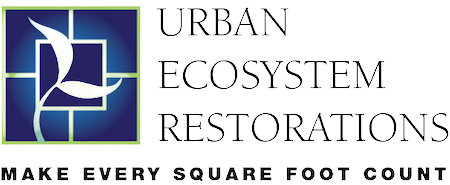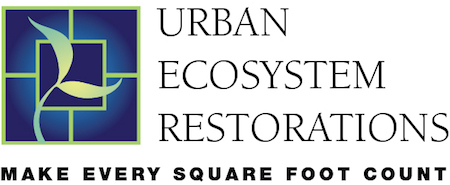1. What is UER?
UER is a 501(c)(3) urban land trust that works with landowners and communities to restore the ecosystem in the Washington D.C. area. We do that by creating and protecting what we call Eco-Functioning Spaces℠ across the D.C. region.
2. What problems does UER work to address?
We face a lot of pressing environmental and social problems these days, including water and air pollution, species loss, and climate change – just to name a few. These problems are aggravated and intensified when urban expansion destroys nature and its regenerative systems.
Scientists are also learning that lack of access to nature has profound negative effects on people’s health. Certain health problems, such as anxiety and depression, some cancers, and heart disease are associated with low access to nature. Also, when people lose their connections to nature, they lose their understanding of it, and society accordingly loses advocates for nature.
These problems, which are having global effects, are directly affecting us at the local level too. Right here in the Washington, D.C. area, urban expansion continues to replace natural areas with buildings, roads, sidewalks, and parking lots. As we lose these natural areas, we lose the natural mechanisms that have historically managed our worsening environmental and social problems– natural mechanisms that are highly efficient and proven effective.
Given projected levels of urban expansion and population growth, there must be an urban response to these problems. UER is developing a model for cities across the country, in which natural restoration and urban growth can become compatible, rather than at odds with each other.
3. What does UER do and how does it fill an unmet need?
At UER, we believe that value-enhancing Eco-Functioning Spaces across the private landscape are an essential part of the solution. Eco-Functioning Spaces are special green spaces that address–and remedy–a wide array of environmental and social problems while adding economic value for landowners and surrounding neighborhoods. As an organization, UER provides value by creating, protecting, aggregating, and engaging people with these special spaces over time.
UER believes that we have not yet made urban environmental restoration sustainable or self-reinforcing, but we can… how?
In order to create a truly effective and sustainable model of urban environmental restoration, UER incorporates two core guiding principles:
First, the environment needs private lands dedicated to ecosystem function in addition to public lands. This is essential, because, simply put, there’s more private land out there – and a greater need for restoration than public lands can meet. In order for the private sector to make this a priority, though, it needs an economic incentive to do so. These economic incentives must become driven by the market (rather than by one-time or sporadic government pay-outs) if we are to reach the scale of restoration we need at this point. UER is working to build a “private market” for Eco-Functioning Spaces.
Second, we need to protect urban Eco-Functioning Spaces over time so that the natural environment can use them to repair itself. Right now, these kinds of protections only exist if governments impose them by law, and that often reduces property values. UER provides a voluntary alternative to government for protecting these spaces, and UER works with landowners to ensure that the protection enhances property value and that anticipated financial benefits of the space redound to those who agree to these protections.
4. How does UER add value?
UER understands the complexity of combining natural systems with urban buildings and infrastructure. We show landowners, developers, homeowners associations, and tenant associations how to re-integrate nature into their site designs and investment plans in ways that are environmentally self-sustaining and economically valuable for the long-term.
And as a land trust, we are in it for the long haul – alongside the owner. We don’t just show up for the design or installation and leave. We are invested in making sure these spaces do what they are designed to do. UER stays accountable for the long-term and ensures these spaces serve our environmental and charitable mission while continuing to add value for the owner.
Land trusts are uniquely important for a number of reasons, but at the top of this list is how a land trust holds the story of the land and reconnects people to it across ownership transitions. When a landowner or property manager changes, knowledge about an Eco-Functioning Space on the property can be lost — why it was installed, the benefits it provides, and how to maintain it to maximize those benefits. One way we add value as a land trust is by preserving that knowledge and passing it on to future owners. We can help them appreciate and retain the value of these spaces. We also work to create innovative arrangements to continue improving the spaces and adding value for the landowners, occupants of the property, and the community at large.
5. How do UER’s programs move this vision forward?
To implement this vision, UER has three basic program areas.
- Our restoration program targets high-impact locations and works with owners to incorporate new EFS where there aren’t any yet.
- Our stewardship and performance program focuses on monitoring, maintaining, and protecting existing EFS. As part of this program, we also educate property managers, and site users (like tenants or visitors) about what EFS are, the value they create, and how to steward them to maximize value.
- Our research and advisory services program keeps UER at the cutting edge of innovation and thought leadership. This is effectively UER’s research & development arm, where we study ways to increase the value and effectiveness of EFS. We also use this program to share insights with the local real estate industry and the general public.
We offer a menu of services in each of these program areas that can be tailored to meet the specific needs of each partner we work with. Learn more about our services in the Visual Intro to UER (under the “About Our Organization” tab).

